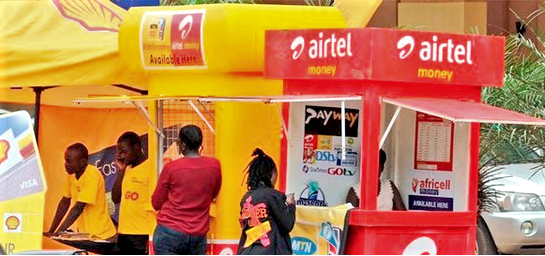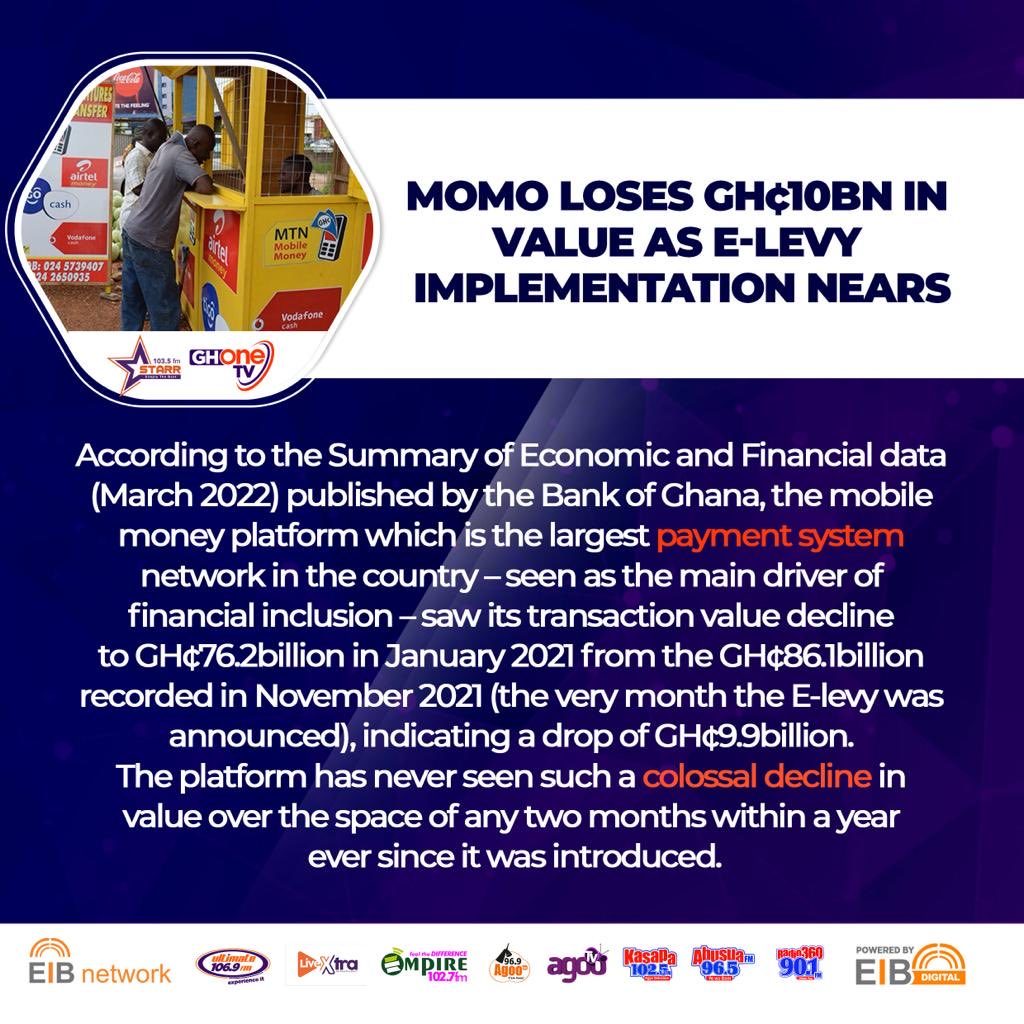
Even before the Electronic Transaction Levy (E-levy) takes effect next month, available data shows that the mobile money platform has lost about GH¢10billion in value between November 2021 and January 2022 – a development that raises serious concerns about the new tax’s ability to rake in the anticipated revenue.
According to the Summary of Economic and Financial data (March 2022) published by the Bank of Ghana, the mobile money platform which is the largest payment system network in the country – seen as the main driver of financial inclusion – saw its transaction value decline to GH¢76.2billion in January 2021 from the GH¢86.1billion recorded in November 2021 (the very month the E-levy was announced), indicating a drop of GH¢9.9billion.

The platform has never seen such a colossal decline in value over the space of any two months within a year ever since it was introduced.
Besides the drop in value on the platform, the total number of transactions also went south as it saw a 24 million decline in January 2022 from November 2021.
The number of active agents also saw a decline of 7,000 within the same period, while active mobile money accounts also decreased by 600,000 in the period under discussion.
All these declines experienced since November 2021 when the E-levy was announced by Finance Minister Ken Ofori-Atta points to one conclusion – that users of the mobile money platform are not ready to pay the proposed tax and may have resorted to cash options.
